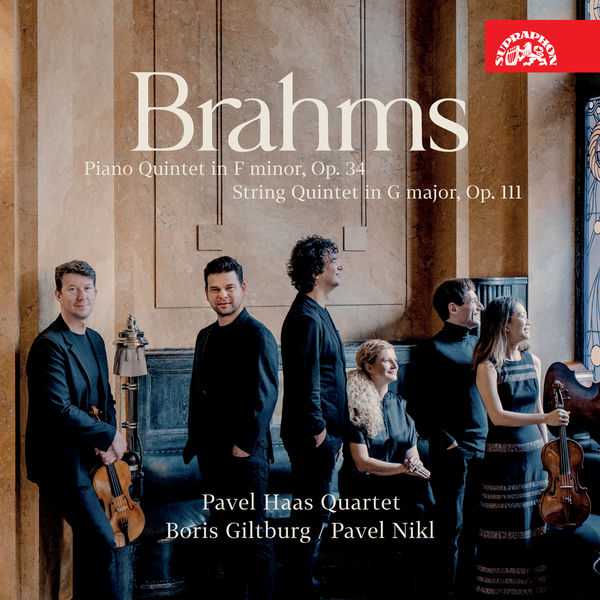

Composer: Johannes Brahms
Performer: Pavel Haas Quartet, Boris Giltburg, Pavel Nikl
Format: FLAC (tracks)
Label: Supraphon
Catalogue: SU43062
Release: 2022
Size: 2.47 GB
Recovery: +3%
Scan: cover
Piano Quintet in F Minor, Op. 34
01. No. 1, Allegro non troppo
02. No. 2, Andante, un poco adagio
03. No. 3, Scherzo. Allegro – Trio
04. No. 4, Finale. Poco sestenuto – Allegro non troppo
String Quintet No. 2 in G Major, Op. 111
05. No. 1, Allegro non troppo, ma con brio
06. No. 2, Adagio
07. No. 3, Un poco allegretto
08. No. 4, Vivace ma non troppo presto
Their recording of the “American” Quartet and String Quartet No. 13, Op. 106, elevated the Pavel Haas Quartet among the finest performers of Antonín Dvořák’s music. This position was subsequently confirmed by a recording of the composer’s Quintets, made with the violist Pavel Nikl, a founding member of the ensemble, and the pianist Boris Giltburg, winner of the Queen Elisabeth Competition. The album received the most coveted classical music accolades (Gramophone Chamber Award, BBC Radio 3 Record Review Discs of the Year, Diapason d’Or, etc.).
While recording the Dvořák’s Quintets, the logical idea of a Brahms album was born. And now it has come to fruition. Dvořák was encouraged by and ultimately attained global fame owing to the kind support and friendship of his older colleague Brahms, who in his twenties had been just as generously aided by Clara and Robert Schumann.
Brahms’ relationship with Clara is probably also behind the Piano Quintet in F minor, Op. 34. Originally conceived as a string quintet, in the spring of 1864 Brahms transformed it into a Sonata for Two Pianos, yet Clara voiced her doubts about this version’s sound too. The desired contrast and richness of colour was ultimately achieved by combining the strings and the piano. Clara Schumann performed the piano part at the private premiere of the quintet, which she referred to as having “symphonic” proportions. This aspect is clearly foregrounded on the present Pavel Haas Quartet recording.
Brahms allegedly intended the String Quintet in G major, Op. 111, to be his last piece of music. In this light, it may come across as a reflection of the music he had cherished during his life – from Beethoven, Schubert, the Viennese waltz, his contemporary Wagner, to his beloved Hungarian dance motifs.